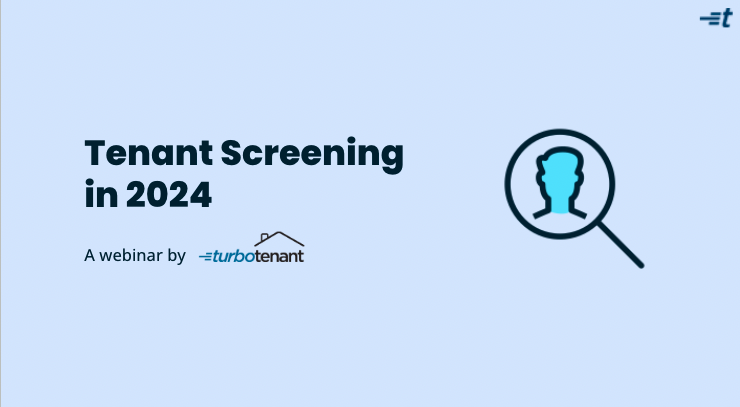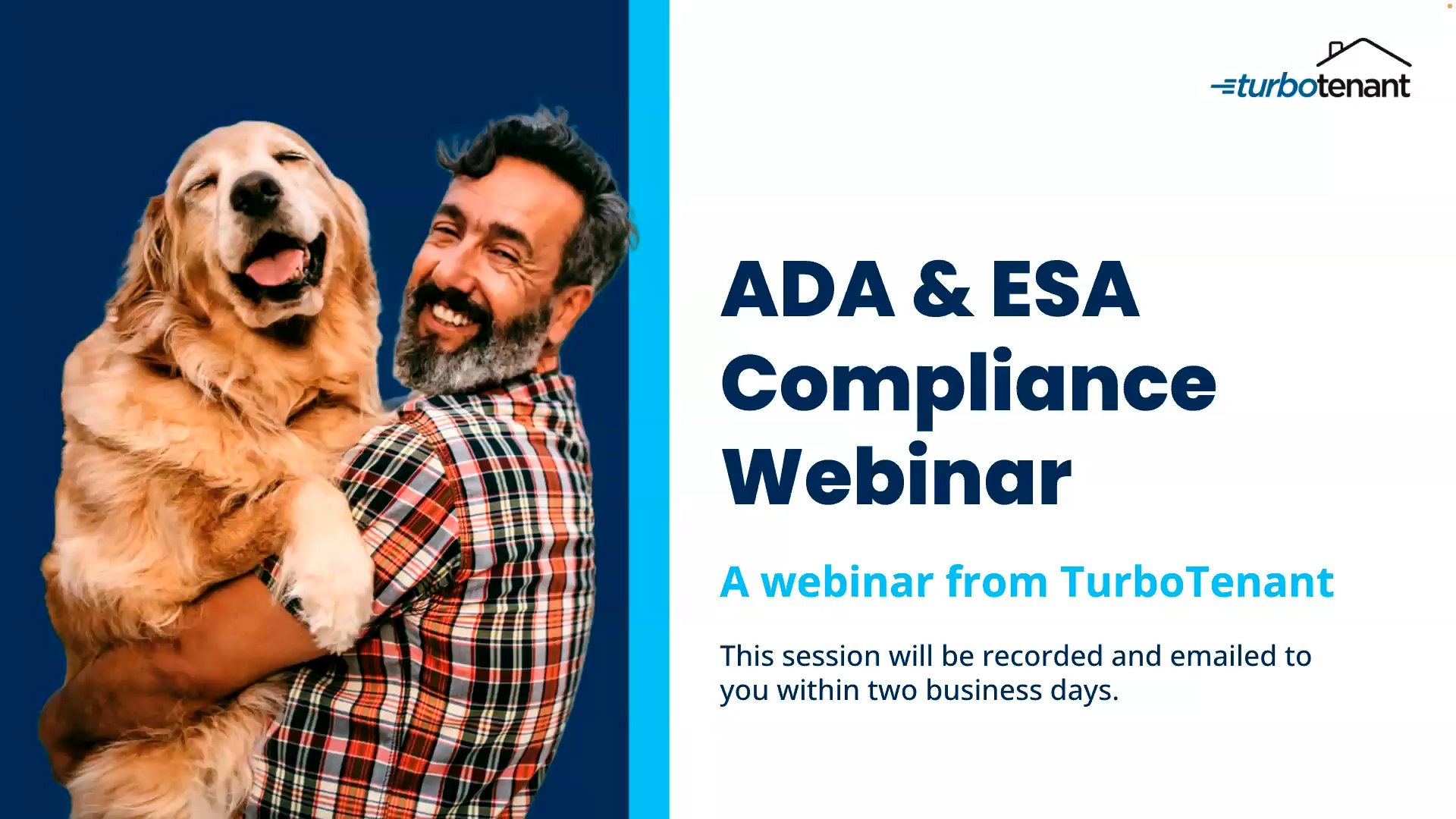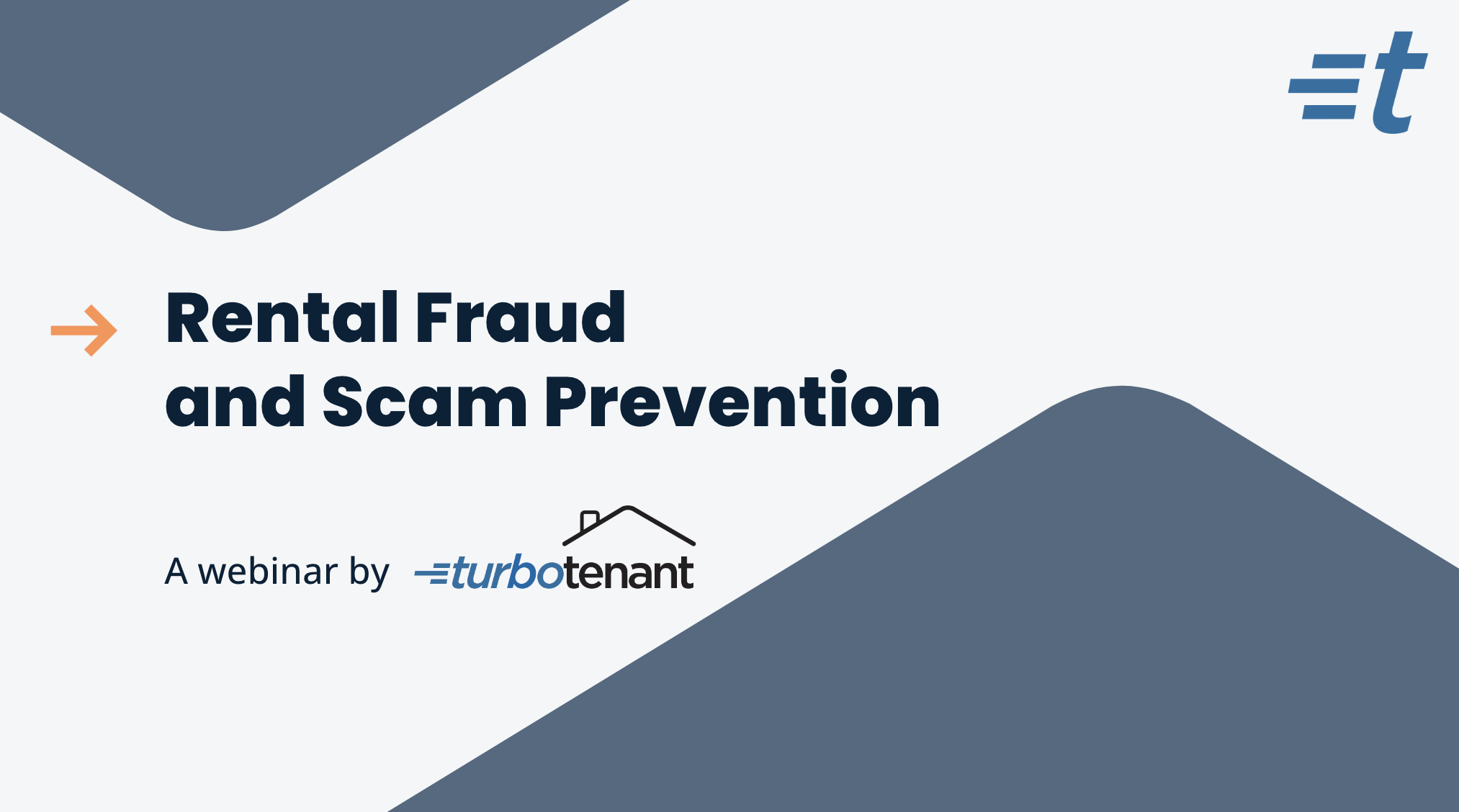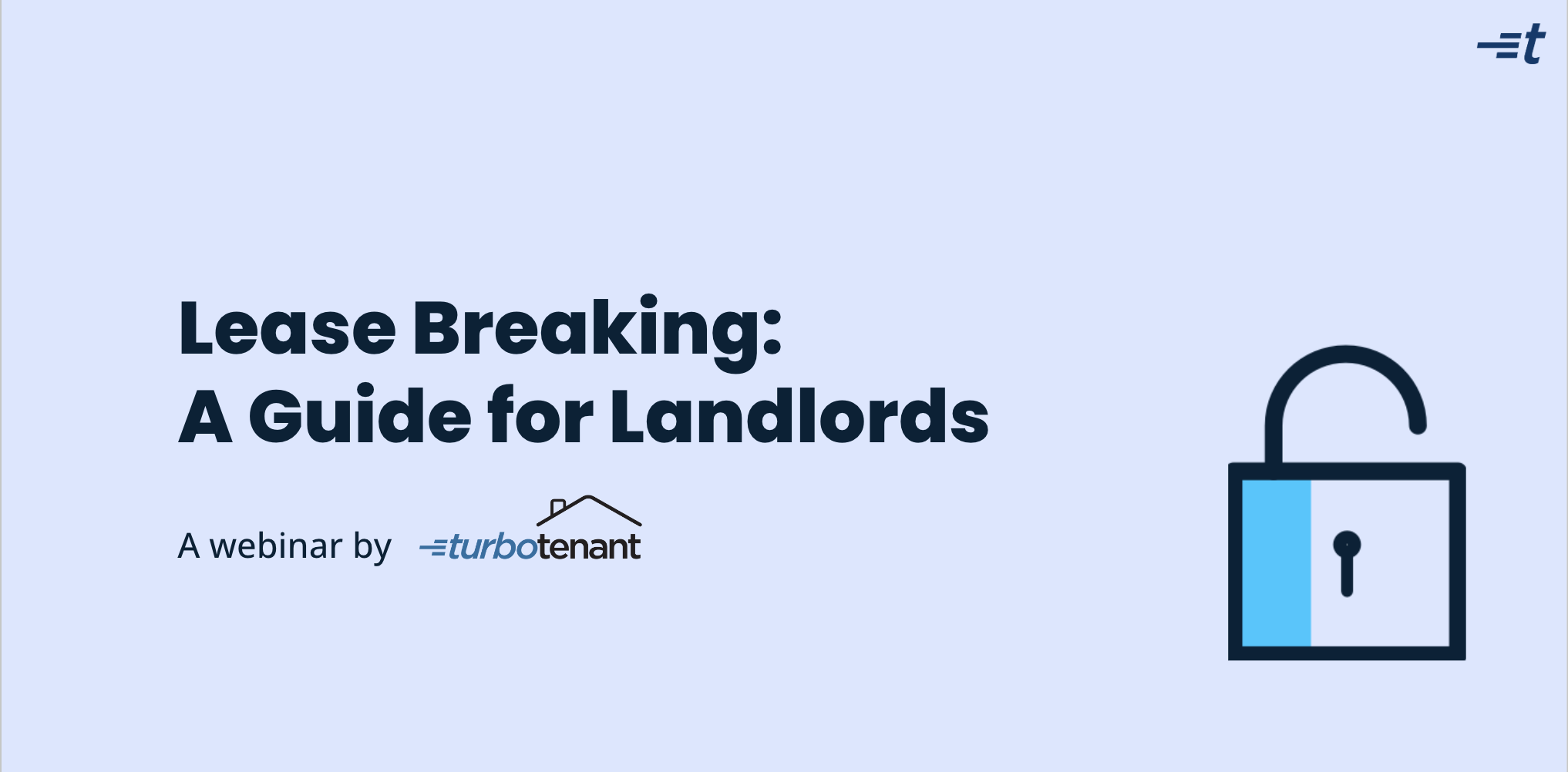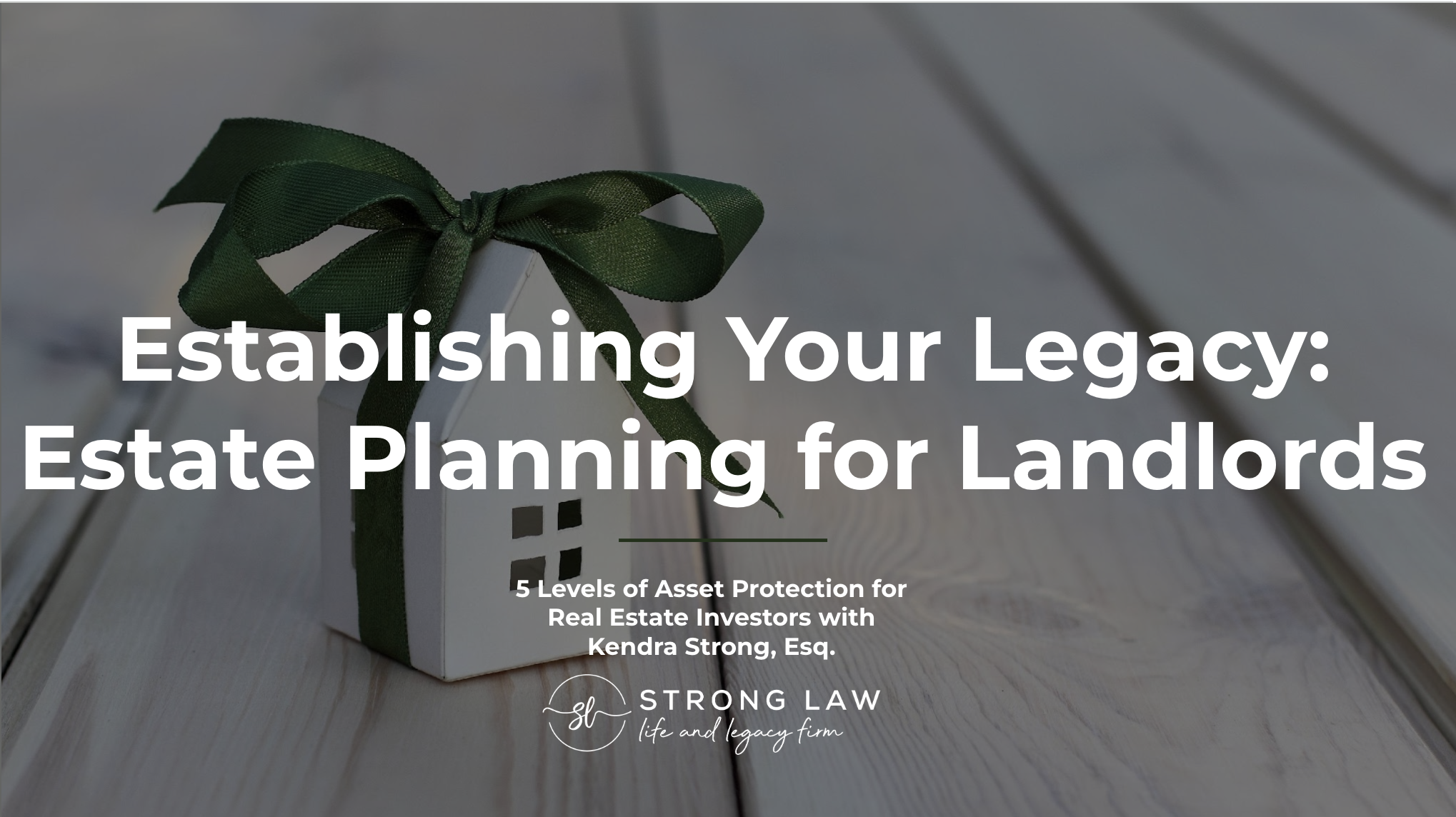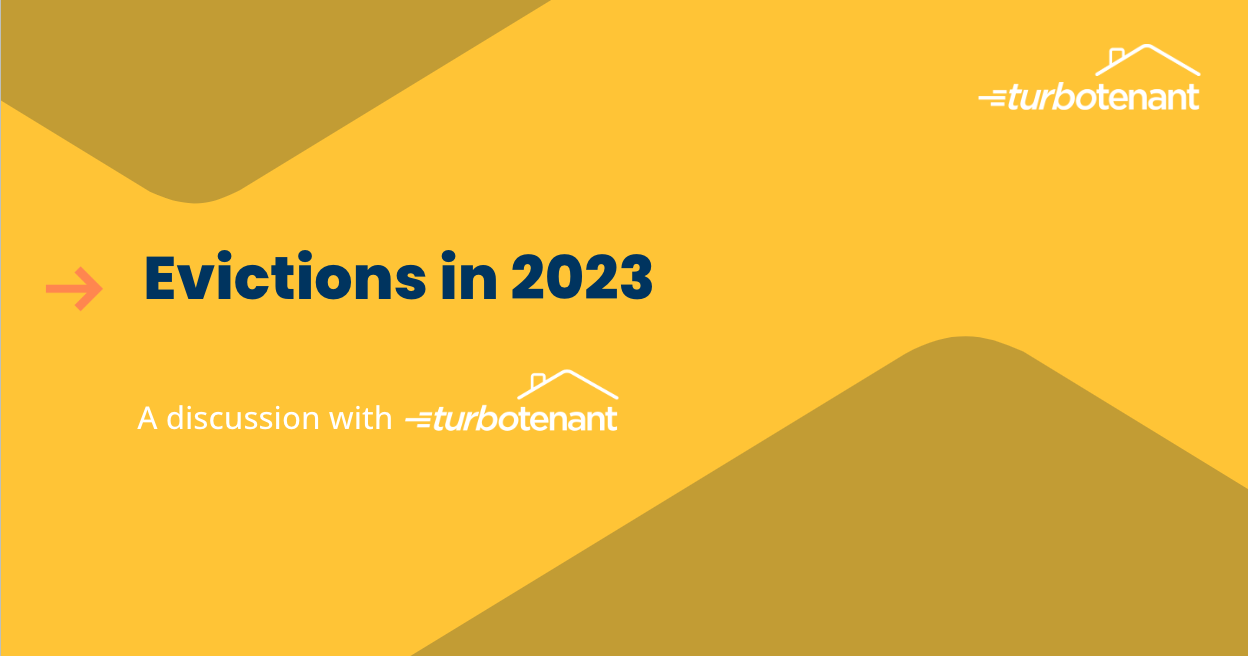All About Leases (Session 1)
In this webinar, we delve into the essential aspects of creating and managing lease agreements for rental properties. From understanding the critical components and state-specific disclosures to setting clear tenant expectations and using lease addendums effectively, we cover it all. You’ll learn about proactive property management, maintaining positive tenant relationships, and ensuring legal compliance. Join us to gain comprehensive insights into fortifying your leases and enhancing your property management practices.
Presenters



Key Takeaways:
- Lease Essentials: A lease is a legally binding document that outlines the responsibilities and rights of both the landlord and the tenant. It should contain critical information such as the names of all parties, lease duration, rent amount, security deposit details, and conditions of tenancy.
- Disclosures and Addendums: State-specific disclosures are required in many jurisdictions and failing to include these can lead to legal penalties. It’s crucial to stay updated on the requirements for your specific state to ensure compliance.
- Handling Lease Changes: Using a lease addendum allows landlords to make changes to an existing lease. This needs to be signed by both parties to become legally binding. Landlords should use official documents or professional services to ensure these amendments are enforceable.
- Proactive Management: Regular inspections and maintenance of the property can prevent significant issues and ensure compliance with the lease terms. Landlords should conduct these inspections periodically and with proper notice to tenants.
- Tenant Relationships: Encouraging tenants to review the lease with legal counsel can demonstrate transparency and fairness, potentially strengthening the landlord-tenant relationship. This approach also helps in legal defense, showing that the landlord made an effort to ensure the tenant understood the agreement.
- Eviction and Legal Actions: In scenarios like non-payment of rent, even if the tenant is in jail, landlords can proceed with eviction as per the state law. It’s essential to follow legal procedures precisely to avoid complications.
- Adaptability and Updates: Landlords should be adaptable and ready to update lease agreements as laws change or as needed based on the property and tenancy conditions. Using resources like state government websites or legal counsel can help in maintaining current and compliant leases.
Top questions asked by the audience:
Do we have to be paid members to use the TurboTenant lease?
No, you don’t have to be a paid member. You can purchase a single lease a la carte for $39, which includes the electronic signature request. Alternatively, you can subscribe to the premium plan for $99 per year, giving you access to unlimited custom lease agreements and other features, including the lease agreement addendum.
Can I enforce current tenants to show the house to prospective tenants during their stay or contract?
This depends on local laws and what is outlined in the lease agreement. Generally, provisions about showing the property with proper notice should be included in the lease.
My lease states that tenants need to notify me if something breaks. One of them did not inform me about a leaking toilet, and I received a $400 water bill. Are they responsible for the charge? What if they say they didn't know it was leaking?
This can be tricky. If the tenant claims they didn’t know, it might be hard to prove otherwise. One approach could be negotiating and splitting the bill. Additionally, consider installing moisture readers to alert tenants of leaks. Jeanne mentioned that tenants have a duty to inform about issues, but it might depend on whether the damage is considered normal wear and tear or a significant violation.
Does my lease stop applying if I die as the landlord?
No, the lease continues to apply. The tenant has the right to finish out the lease term unless otherwise stated in the lease.
What happens to the lease if I sell my rental property?
If there is no specific clause in the lease, the new owner must honor the lease terms until the end of the lease term. The tenant will continue paying rent to the original landlord until they receive written notice to pay the new owner. The security deposit can either be transferred to the new owner or returned to the tenant according to the lease terms.
What happens if my property is foreclosed on?
Typically, tenants can remain in the unit through the term of their lease. If the new owner intends to live in the property or there is no written lease, the tenant must be given written notice to vacate. It’s advisable to seek legal assistance in these situations.
What if I break the lease as a landlord?
The tenant can sue you, as the lease binds both parties equally. Providing an uninhabitable residence, such as lack of heat, light, electricity, or severe infestation, can lead to legal action against you. Regular inspections and maintenance are essential to avoid such issues.
Can I deduct old late fees from a security deposit after move-out?
Security deposits are state-specific. Generally, it’s not allowed, but it’s essential to check your local state code for specifics.
Can we hold a security deposit if the tenant breaks the lease or decides not to move in?
Typically, you cannot withhold the security deposit for these reasons, but check your state law for specifics.
Can you evict a tenant who has stopped paying and is in jail?
Yes, you can go through the eviction process for nonpayment regardless of the tenant’s incarceration status.
What if a tenant refuses or doesn't sign an updated lease? Should I involve an attorney?
If a tenant does not sign the lease, it’s not legally binding. They would be considered a holdover tenant, and you can proceed with eviction.
Can you use a lease addendum to renew the lease for a year with or without a rental increase?
Yes, a lease addendum can be used to renew the lease with new terms, including rental increases.
What happens if damages cost more than the security deposit?
Document everything and show receipts for repairs. You can then take the tenant to small claims court for the excess amount.
As a real estate broker in Colorado, do I need to sign a written disclosure form for tenants?
Typically, these are two separate disclosures. The lead-based paint disclosure includes a section for a broker, but you should use separate forms if required by your state’s regulations.
Can I sue a tenant for damages and repairs caused during their stay after eviction in New York City?
Yes, claims for damages and repairs can be added during the court process for eviction.
How can I address the possession of firearms in the rental unit?
Include a firearms policy in your lease as an addendum. You can set rules similar to smoking policies.
How can I limit partying activity in the lease agreement?
Specify quiet hours and rules to respect other tenants in the building.
What should I do if I want to prevent children from using play structures unattended in the rental unit?
Include a clause requiring adult supervision for children under a certain age when using play structures.
What are the chances of raising rent to market rate in New York State if a tenant is already renting at a lower rate?
Check New York State laws on raising rent and required notice periods. Rent control laws may also apply.
Where can I find state-specific leases in TurboTenant?
Visit support.turbotenant.com and search for your state. You can find articles reviewing the lease agreements and links to state-specific lease samples.
What happens if a lease is revised but you already have a signed lease in place?
Typically, new legislation won’t invalidate existing leases. However, it’s best to check for any specific updates or requirements.
Where can I find state and local resources for updating my lease agreement?
Go directly to your state’s official website or code, usually ending in .gov, for the most accurate and legitimate information.
Will you offer a separate lease for California that protects landlords more?
The updated California lease includes extensive disclosures designed to protect landlords while complying with state-specific laws.
Do you have guidelines for reasonable charges if a tenant breaks the lease early?
Typically, tenants may be liable for the full rent amount until the unit is re-rented. Specific clauses can help outline the payment amount and time frame for breaking the lease.
If I cannot evict due to the memorandum, can I terminate a month-to-month lease without a violation?
Each state has specific laws around this issue. It’s recommended to consult with an attorney for guidance.
How often can we inspect a property? Are there any hard and fast guidelines?
Quarterly inspections are recommended at a minimum. More frequent inspections can be conducted, but always provide required notice to tenants and adhere to state laws.
Transcript ▼
Krista Reuther:
A couple of notes right at the top of things. One, this webinar will be recorded and emailed out to you after our session ends. So don’t feel like you have to jot down all of my notes on moths in addition to all of the things we’re going to say about leases in the first pass here. We will send it to you afterward. Additionally, feel free to use the chat or the Q&A function to ask questions along the way. We’ll make sure to take some pauses and answer questions as we can, but there’s also going to be a big Q&A portion at the end of the presentation with our very own very lovely paralegal, Jeannene. So stay tuned for that. It’ll be fantastic. Speaking of lovely, we have the incomparable Samantha with us here today. Samantha is our resident landlord experience expert and specialist. Hi, Samantha.
Samantha Yadav:
Hello, I’m fantastic. I’m so excited to talk about leases and not moths today.
Krista Reuther:
It should be a good time. My name is Krista Reuther. I am your senior content marketing writer. That’s a lot of words to say I write educational content for you. So let’s hop into it.
Samantha Yadav:
Nice. We have a poll to get started. And this is just to help us know a little bit more about you in the audience today. So we want to know how many rental units you own or manage. We want to know if you’ve attended a TurboTenant webinar before, if you have a TurboTenant account, and we want to know some details about your current lease.
Krista Reuther:
Absolutely. Like Samantha said, this helps us tailor the presentation to who’s in the audience; the audience shifts quite often with these various events that we do. So thank you in advance for providing some color so that we can provide you the best information possible. Thank you.
Now something you might not know if you are a first-time viewer is that Samantha actually was a, what was your experience before this? I don’t want to mess it up.
Samantha Yadav:
Yeah, I was a property manager for multifamily communities. So ranging from 250 rental units to over 1500 that I managed for a while. I did that for about a decade before hopping into the TurboTenant team. So I made lots and lots and lots and lots and lots and lots of leases over the years.
Krista Reuther:
Yeah, you are a lease expert in other words, or at least a lease enthusiast at this point. Okay, at the very least. What a gem. Good time. All right. Let’s go ahead and wrap up this poll. Okay. Great spread of folks, lots of folks with a smaller portfolio today that’s a-okay. If you’re someone with 21 plus units, we’re going to teach you something too, don’t you worry.
And in terms of where people are getting their leases, happy to say TurboTenant is on the list. Others said a friend, someplace else, their dad. They made their own. This is great there’s a web version for Virginia. Cool. Thank you so much for that information. Now let’s tell you what you’re going to learn today.
Samantha Yadav:
Yeah, so some things that you’re going to learn today. Obviously, a lease is a legally binding document. So we want to make sure that it’s accessible for both you and your tenants for your maximum benefit. Your state, your specific state, may require specific disclosures, and if you fail to provide those disclosures that could result in heavy fines and steep penalties. And then, finally, there are clauses that you could add to your lease to strengthen it significantly, even in the case of death. Very exciting stuff.
Krista Reuther:
Very exciting stuff. Thank you so much. So, if you’re someone more experienced, you might be looking at us like we’re a little bit cuckoo today. Okay, why would we start at something so foundational to your rental property business, but really the lease is where your business starts and stops in a lot of cases because both you and your tenant are equally bound to the terms of your lease. While less scrupulous landlords might see that as an opportunity to sneak clauses in that are not in the tenant’s best interest, or otherwise undermine that fundamental relationship, your goal as a nice good landlord who values your tenants is to make sure that everybody involved knows what you’re agreeing to. You should feel confident enough in your lease to recommend resources to help your tenant understand their legal obligations. If you get to a spot in your landlord journey where letting your tenant, or even advising your tenant to take the lease to a legal professional gives you pause and makes you nervous. That is a really good indication that your lease might not be up to snuff and you should probably take that pause and make sure you’re feeling good enough about it.
Because again, this is binding you two together. It’s usually at the very start of the relationship that the lease is kicked off. So, this is not a step where you want to mess up, and it’s really critical that you understand all of the components of the lease to do this properly. So with that in mind, you might be asking, Krista, why would I want someone to review this? Why would I want my tenant to go off to a legal professional that might not be in my best interest? I’m going to argue that it would be really making that recommendation shows your confidence in the lease, it also shows that you feel that this is a good fair arrangement, one that you can stand behind. And that sets up your landlord-tenant relationship to really thrive. It also gives your tenant a chance to negotiate and ask questions.
That might be scary, but that’s really not a bad thing. At the end of the day, you want everybody involved to feel a sense of ownership with the lease to treat it as a living document that you can come back to in times of question. And opening this up, offering this opportunity, or really making the suggestion is a really good first step in that direction. Plus, if you tell someone, hey, make sure you look this over with a lawyer, or if you have any questions here are local resources to help. That could help you in your legal defense and the rare chance that something happens and you have to go to court because that shows that you took your steps to make sure that the tenant understands what they’re signing. So happy tenants will get you more profit since they stay longer if they’re involved in the lease, if they’re really understanding what they’re signing. That is going to help you down the road and build your business it also helps you have referrals, because people who are happy with you as a tenant are more likely to tell others when you have a vacancy that you’re a good landlord that they should check out. So this could be the start of a prosperous relationship and you should take it pretty seriously. With that in mind. Samantha, what would we like the people to do?
Samantha Yadav:
Yeah, well, speaking of taking things seriously, we’ve got a pop quiz. So in the chat, we would like everybody to type in or shout it out via text. What goes in a residential lease? So what are some components that you would think belong in a residential lease? You could let us know in the chat. We would love to know your thoughts.
Krista Reuther:
Absolutely. We’re starting here with the basics and we’ll go into more specific clauses and things as we move forward but we just want to make sure that we’re on the same page about what you should include.
Samantha Yadav:
I love this response from Sweet Tooth OMG what does not go in a lease.
Krista Reuther:
So true. Oh, also HOA rules that apply. That’s a really good point, especially for people who are in condos because that can get particularly sticky. Make sure you have those rules in there.
All right. Yeah, Summer said it well: all the things you want legally to document for protection of yourself and your property should go into the lease. Early release is a good one. We will talk about that too.
Samantha Yadav:
Test one indicated responsibilities of the landlord and then just as equally important are going to be the responsibilities of the tenant. We want to make sure we’re covering both sides there. Absolutely.
Krista Reuther:
I also like the highlighting of city codes that can be really important depending on where you live. So good on you Martha.
Samantha Yadav:
Requirement, to add the landlord as an additional interest on the contract for like renters insurance and things. Fantastic idea. These might be lease experts already, Krista.
Krista Reuther:
I know. I’m really proud of you guys. You’ve got some good stuff. So in terms of the basics here, bare-bones, very basic. Here’s what you need to make sure that your lease has. It has to have all of the names of the parties involved.
You obviously need to have the length of the lease itself. When does it start? When does it end?
What are the policies around those two times? Also rent price. What are they going to be paying every month? What are the late fees, utility costs if included? And then of course, security deposit. How much is it? How is it collected?
And then of course, reasons for deductions so that they understand before they even step foot in the property as a tenant that they will be held responsible if there is any kind of damage. Anything we’re missing, Samantha, that you would add in?
Samantha Yadav:
Yeah, I think those are going to be, you know, the base if we’re just looking at the core for I think these are great things to keep in mind and then all of these suggestions in the chat are great opportunities for strengthening that lease with addendums and amendments and agreements and all of these things so I’m excited to jump into that.
Krista Reuther:
Absolutely. And Summer, I like how you specified that in Pennsylvania you have to let your tenants know what bank account the deposit is stored in. It’s really good to highlight that does change state from state.
So, keep that in mind as we move through. We’re going to give you the broadest most national sense of leases. And then we will also keep advising you to make sure that you’re checking in with your local rules, laws, etc, to follow everything that you have to. Otherwise, you can get caught up in very specific rules for your state or locality think Cook County, if you are a member there. And we don’t want you to get into any trouble. With that said, So we’ve talked about the bare bones of a lease agreement itself.
But let’s take a step back out of that. There are three sections in a residential lease agreement. The first section and the third section are generally pretty standard from state to state. So the first section is going to have basic details like we just discussed address start dates end dates total monthly rent. Everything that you could use in terms of a very bare-bones lease, it’s probably going to be in section one. Section two, you’re going to start getting into state or city-specific information such as disclosures, we’re going to go over some common disclosures and some less than common disclosures that you should know about.
But that is usually where they live, Section two. Section three, this one is where your clauses are going to go. So things about subletting, altering the property landscaping I noticed somebody said that in the chat. This is likely where those agreements are going to live.
So you should understand all of them but this is the basic layout. Right. So that’s what we’re going to be talking about in this slide. In terms of disclosures. Now a disclosure is just information you are providing basically to allow someone to have informed consent in one way or the other. That’s the way that I would put it.
NOLO has a great definition too once you get this deck emailed out to you can click in and read more. Some common disclosures that you might see in leases of course, you’re going to want to outline if you’re charging any non-refundable fees. So for example, maybe you have a pet fee when they move in that is non-refundable and a pet deposit that is refundable, outline them. You’ll also want to make sure that you outline existing damage to the property. So a move-in checklist really helps here.
If you don’t have one we have one in our forms back. Feel free to check it out on TurboTenant.com. Other things to include your smoking policy. If there are any kind of violations or housing codes that aren’t up to code. Let them know. You also want to make sure that you share their rights.
So, down here, last two bullet points the right to be present at a closing inspection is very important. And what I would argue is even more important in nowadays is the rights of domestic violence victims. So very recently in so far as this year actually the White House released a new set of support for the rights of domestic violence victims.
I’ve linked out here to a list of different rights by state. And it’s not an exhaustive list, by the way, with all these disclosures. And just because your state or locality doesn’t require a disclosure doesn’t mean you can’t provide it. So let’s say that you’re not in a state that requires you to provide rights of domestic violence victims.
I would still recommend that you throw that in there. It’s a good thing to have and it provides resources to people who might really need them. Last thing to note, the only federally required disclosure is the lead paint disclosure. So we automatically append that for you if you are using the TurboTenant lease builder. We also help you out with other disclosures which I’m sure we’ll touch on as we move through. In terms of state-specific disclosures. There are quite a few I have just pulled California to give you an example. So you can see the name of the disclosure and then where it would live in the lease agreement itself.
I pulled this from our example. So California has a lot of rules, California landlords go off in the chat I’m sure that there are a ton of rules that you have to follow every single day. In fact, I know that there are. And the disclosures are no different. So you can see that there are quite a few that they have to move through bed bugs are becoming quite common in terms of disclosure topics. That has been popping up a lot more as has anything related to climate change so flood zone notices might be becoming more prevalent in your states depending on where you live.
Keep an eye out. If you are building your lease yourself or if you’re using an old lease. It is critical that you stay up to date on these disclosures because if you don’t, you can basically be giving out a lease that is not legally binding. It’s violating the rights of your tenants and they could sue you for it. So be very careful if you are making your own lease. If you’re using our lease system, we actually append the required disclosures for you as you go through and build it.
We provide state-specific leases. So if you have questions about that, me and my cat will be happy to tell you all about it. Just let us know.
Alright. There are of course some states that have no additional disclosure requirements. So these states still have to disclose lead paint for example in buildings that were built after 1978, I believe. So if you are in Arkansas, here in sunny Colorado, Idaho, Louisiana, Mississippi, Missouri, or Vermont, you do not have by and large additional disclosures.
Make sure that you’re looking at your local ordinances though because they will still apply. And remember, you can still offer disclosures even if you’re not required to do so. So then that might make you think, well, what can I not put in a lease? You know, it is a legally binding document, but there’s got to be stuff that doesn’t belong in there that I can’t enforce and you are absolutely right. So depending on your state, there are a variety of things that you cannot include in a lease. Most of it is going to boil down to making the tenant revoke their right in some way or waive a right to something.
As you can see with this first bullet. So you cannot require a tenant to waive the right to return their security deposit. You also cannot waive your responsibility for acts of gross negligence. There are nothing that you can put in a lease that would make you not responsible for providing a safe place for someone to live. Then we have something more specific to the military.
You cannot require a tenant who’s been called into military service to pay the remainder of their rent due for their entire lease term if they were called into service before the lease term. It starts to get a little bit sticky, but I think you can make sense of it. Let me know if you have any questions as we move through. The second part of this, of course, more things that you cannot make people do. So you cannot require a tenant to waive the covenant of quiet enjoyment. In other words, you cannot make it so that they are not allowed to complain about noise or about feeling harassed. You also cannot require them to waive the warranty of habitability.
So they have to have a safe, comfortable place to live. You have to be following rules to provide that since you’re collecting money. A lease is really the formalization of the warranty of habitability in exchange for money. So it makes sense that you’re not allowed to require this to be waived. Lastly, you cannot make a rule allowing yourself to forcibly remove a tenant or their property without going through the eviction process. That would be a self-help eviction in most cases, and that’s not legal. So don’t do it. Alright. So we’ve talked a lot.
Samantha, what do you think? Yeah, I have a question for everybody, which is on the screen here and we’ll be popping up in just a moment as a poll. But how much do you trust the lease that you’re using now? On a scale of one to five. One is I don’t trust it, it’s been written on a napkin, and five would be extremely it’s perfect. We love it. We trust it.
Krista Reuther:
Absolutely. I’m excited to see these answers come in. And don’t hold back even if you’re using a TurboTenant lease. We want to know how you’re feeling.
Samantha Yadav:
Especially if you’re using a TurboTenant lease, I would say we want to know how you’re feeling. So true. And they are coming in. They’re zooming in.
Krista Reuther:
Have you ever seen a really bad lease in your experience?
Samantha Yadav:
When I first started property management, I took over a role for another manager. And that manager was at the very end of their rope as they were leaving. And I did actually see a lease agreement that had edits on it with a crayon.
So like an actual red crayon, things were circled and then there was like a line over to the side and then pen initials of what I assume was the tenant and also that property manager at the time, but it was very very professional with a red crayon.
Krista Reuther:
Me, oh my, yeah, that sounds like a to-see. Oh, right. Let’s see how the people are feeling. Oh, it shares the whole screen. Look at that. Okay, we have a variety of answers here, ranging of course, but just eyeballing it a lot of people feeling fairly comfortable. Some folks are feeling very unsafe with their lease. Hey, this person is so comfortable.
They rated it a 99 out of five. I love that for you. Thank you. Okay, so quite a range, but it seems like you’re feeling all right.
That is okay because what we’re going to do is help you take your lease to the next level. Let me just start this back up again. A little peek behind the curtain. So we’re going to help you take your lease beyond the basics, but first, Samantha, are there any questions in the chat that we should tend to before we move on?
Samantha Yadav:
Let’s see, there are quite a few questions coming in. So somebody was asking, do we have to be paid members to be able to use the TurboTenant lease? The TurboTenant lease, if you’re just needing one, you can purchase that a la carte, which is $39 and includes the electronic signature request, or you can subscribe to our premium plan, which is $99 for the year, and that gives you access to unlimited custom lease agreements in addition to other features which include our lease agreement addendum. But these rules and guidelines that we’re going through are not just for the TurboTenant lease, so they’re for all leases anywhere you may get them or build them. So that was one question that came in. Let’s see. Can I enforce current tenants to show the house to prospective tenants during their stay or contract?
Krista Reuther:
You know, I would say I’m not, my head isn’t wrapped around Georgia law this, you know, on this question, but I would say, you know, they have to, the leases all have to term out before anything can be done with that property.
Samantha Yadav:
And then do you do my lease says that tenants need to notify me if something breaks, one of them did not tell me that a toilet was leaking and I got a $400 water bill. Are they responsible for the charge, what if they say they didn’t know it was leaking?
Krista Reuther:
Ooh, it’s tricky if they say they didn’t know it was leaking. Because how can you prove that they did know. Hmm. Yeah, I mean, in this case, I will provide my answer and then we can let Jeanne provide an answer at the end. But if it’s one of those maintenance situations where it’s hard to discern if they actually knew what’s going on or not. I might go and approach them and try and split the bill and say hey, you know, as mentioned in the lease, I am looking to you to let me know when things are damaged that I can fix them as soon as possible and make the unit as habitable as possible for you.
Unfortunately, this particular maintenance issue was not reported. And now it’s led to this can we split the bill all pay 200 you pay 200. See what they say. But Jeanne might have a better answer for you at the end of this presentation.
Samantha Yadav:
It also might be a good time to investigate water moisture readers that you can then put in your bathrooms or wet spaces to alert the tenants very loudly if there is any sort of moisture happening that shouldn’t be your leaks, things like that. I’ve got a few questions saved for the end so I think we’re good to kind of plug along for now.
Krista Reuther:
Thank you so much. Alright, so let’s take your lease beyond the basics, shall we. We’ve got to consider some of the less common disclosures, some of which we are just kind of hinting at with the questions that were rolling in. So first off, are you going to allow subleasing or subletting in your unit. If you’re not clear on what these terms mean, subleasing allows the property to be rented to a new renter through your original tenant and their associated lease. So, in other words, your tenant is more responsible for that relationship they’re finding the person who’s going to take over the lease, and they are making sure that person pays. Subletting on the other hand, is when a new renter signs a brand new lease with you. So, if you disclose from the very beginning, where you stand on these two procedures, you can circumvent any kind of sticky conversations down the road. Also, you should probably outline improvement ownership. Answering the question, can tenants remove features that they installed upon move out.
According to the American Bar Association. This is the area where disputes most often arise because tenants can install more or less permanent features like chandeliers or ceiling fans. But then sometimes they want to remove them from the apartment when they move out. Well, under the general concept of landlord-tenant law, tenants can do anything as long as they don’t damage the property. But if you specify in your lease that tenants are not allowed to install these features without your approval, or you require that they get your approval and leave the fixture when their lease expires, you’re allowed to do that. Some leases do permit things like removal of the fixtures of the ceiling or the wall.
If the tenant restores the property to its original condition. That can get a little bit hairy. So use that at your end discussion, but it’s certainly worth thinking about. Also, in terms of fair housing, you might be asked to have reasonable accommodations on your property or made to your property. If that’s the case, tenants are required to return the property to its prior condition when they move out if any changes were made for accessibility.
So keep that in mind. Next up something very, very important top of mind for a lot of landlords is liability. So, is the landlord liable for damages incurred by the tenant, if they’re injured because of inadequate maintenance of the property? This is a tricky clause because obviously you have a duty as a landlord to provide a safe space for someone to live.
But if the lease does not contain an exculpatory clause, or if your state doesn’t allow that kind of clause. It could be up to the court to decide whether or not the injury sustained by your tenant from some act of negligence falls on you to take care of and pay for. Some courts have held that if the tenant’s injury resulted from the landlord’s violation of the housing code, then you would be plainly negligent. Excuse me, negligent and liable. Other courts have said that the tenant needs to prove negligence—just kind of depends on where you live and what the courts are feeling. So very good to have this outlined in your lease so that nobody’s confused. All right. So okay maybe you’re hearing all of this you’re getting some ideas.
Oh wait, I skipped a little too fast. Here we go there’s still some more things worth considering this first one is this next one I should say is particularly good for those with large outdoor spaces. You should really be defining how you’d like your unit’s outdoor space to be used. So I would recommend, depending on your unique situation, also having the tenant reach out to you before they install any kind of big equipment or play structures.
That could help keep everybody safe. So for example, you can ask your tenants to or require your tenants to let you know before they install something like a trampoline. That would give you the chance to then talk to your landlord insurance and have them talk to their renters insurance and make sure that everybody’s properly covered in case somebody gets hurt using that object.
You can also request that the tenant either regularly inspect and repair play structures, particularly if they brought these themselves they weren’t provided by you upon moving. So that would be a good option to keep everything safe. So if you do that, ask your tenant to look out for rusting metal, rotting wood, weakening equipment, and any other defects, these defects should be repaired immediately and in this disclosure, you should outline who’s responsible for funding these updates. So if the equipment is going to be kept in a common area. Typically, you might end up taking that on in terms of upkeep costs if the tenant who brought it is not the only tenant who uses it. But another thing to note with equipment in a common area is that anybody who is using it should have their parents or should themselves sign a lease addendum or a safety notice to further clear you of any liability. And lastly, here’s something that you should keep in mind that you might not have in your current lease options on how to break the lease, whether it’s because you want to sell it off. Maybe unfortunately you pass away and your estate is trying to figure out what to do with the property, having some forethought and planning this ahead of time will save you a lot of headache down the road.
So when you write in a break lease option, you should detail what everybody would be responsible for. Are you going to be giving a money? You know, are you going to give some money for the keys, cash for keys situation? How is it going to work? What kind of notice is going to be given?
Put all of that in writing and then you can follow it to the T if you end up needing to break the lease or if they need to end up breaking the lease. It should work both ways. So now let’s say you’re like, wow, great ideas here.
Really love to hear them. What if I have a lease that’s already active? And the answer of course is to use a lease addendum. So an addendum is a separate legal document and it’s added by you to the original lease. That means it’s going to need the signatures of you and your tenant in order to be legit.
So that’s well and good. But what if you don’t know how to write a lease addendum? Let’s first look at what has to be in it.
You are going to want to make sure, as I mentioned that you have signatures from everybody involved, basic details like the renters’ name, your name, rental property address, the date that this is valid, the lease start date, and then all of the information about the provision itself. So if you don’t feel like writing this up on your loan sum, you’re a little nervous. That’s a okay. I wouldn’t write up legal documentation myself either. We do offer lease addendums through Turbo Tenant. We also have multiple different kinds of addendums in there, I believe so check it out and let us know if you have any questions. Alright. Okay.
Samantha Yadav:
I have so many frequently asked questions if you’re ready to jump into them.
Krista Reuther:
So ready.
Samantha Yadav:
What’s your I sprinkled this teaser I sprinkled in this teaser earlier but does my lease stop applying if I die as the landlord?
Krista Reuther:
Yeah, first of all, R.I.P. That is a good question. I think that’s a good question. I think that’s a good question.
Samantha Yadav:
I have another question. So far, this time in this scenario, but what happens to the lease if a rental property is sold, I sell my rental.
Krista Reuther:
Yeah, so if you don’t have any clause in the lease, then the person you sell it to must honor the rental contract, assuming that it existed at the time of sale. So what that means is that your tenant still has the right to finish out their lease agreement, and the new owner is bound to all of the same lease terms, including the amount of rent, unless an amendment is signed. So the tenant is going to continue paying you the original landlord unless you provide unless and until you provide written notice directing the payment somewhere else. That’s why if you think that you’re going to sell a rental property. It’s really good to have this kind of disclosure in your agreement from the beginning. So you avoid this kind of headache if you’re trying to sell and you don’t want this term in the mix. Oh, also. Now this is specific to Colorado but it could apply broadly. Just make sure that you’re checking with your local laws. When a property is sold prior to the end of a lease, you have two alternatives in terms of the tenant security deposit.
You can either transfer the security deposit to the new owner and notify the tenant by mail that the transfer has been made, or you can return the security deposit to the tenant per the terms of the lease less any legitimate deductions according to UC Denver. Alright.
Samantha Yadav:
Well what happens with my property. I’m not selling it but it’s actually foreclosed on before foreclosure.
Krista Reuther:
Sorry to hear that. So, typically, everybody with a written lease has to be allowed to stay there through the term of their lease. You’ll see a common theme here is that the lease reigns supreme. So, if there’s no other disclosure, amendment, anything like that. It’s going to be carried out to the letter in its original form. Where it gets sticky is if the new owner intends to live in the new rental. If there is no written lease or if the new owner wants to live in the rental. The tenant has to be given a written notice to vacate there’s going to be some time built into when they actually leave.
Unless there are a couple of unique situations. So if the tenant has an ownership interest in the rental property being foreclosed upon can’t give them the written notice to leave. If they were a member of the foreclosed owner’s family, and or if they are not subsidized through a government program but they are paying substantially less than fair market rental. That’s when it’s going to start to get sticky and you’ll definitely want somebody who is a legal expert in your locality to help out. Whether that is somebody who can help you try and move these people out faster or find an arrangement that makes it so the situation doesn’t come crashing down around your plans. Having somebody who knows the laws in your state and location is going to be critical for moving through this kind of complicated situation.
Samantha Yadav:
Krista I’m having a really bad week as a landlord. I’ve died. I’ve sold my property but then I had a foreclosure. So what happens if I break the lease as a landlord.
Krista Reuther:
So sorry to hear about all this. Well, unfortunately, it’s going to get worse because your tenant can sue you remember the lease is binding you to the document as much as it’s binding your tenant to the document.
So both of you have to follow it very closely. And in fact, everywhere except Arkansas, for some reason, allow the tenant to sue their landlord if they provide an uninhabitable residence. So let’s say you break the lease by not following up on maintenance requests. The unit is going to become uninhabitable over time depending on that maintenance request and you could be sued for that. So don’t take any chances. And if you’re sitting there like well what is unlivable I could be pretty comfortable in a shoebox and with a little fan in the corner.
Let’s go through it. If there is a lack of heat, light, electricity or water and this is not caused by the tenant’s failure to pay. If there is a lack of sewage disposal or severe rodent infestation also bed bugs. If lead paint hazards were not appropriately addressed. If there are structural defects, anything posing a severe health or fire risk makes a unit uninhabitable.
When in doubt, ask yourself, would I want to live here, would I pay money to live here. And if the answer is no you should really start fixing that sooner rather than later. And of course when we send you out this deck you will be able to see this recommended resource about how long you have to fix something I highly recommend that if you are starting to sweat a little bit thinking about, you know, Mickey, Minnie, and their host of friends, encroaching on your units, just make sure you check that out.
Samantha Yadav:
I have a ton of questions ready to go and I think we have an expert ready to answer them.
Krista Reuther:
I love that for us. Jeannene, would you like to pop on? I am here. Hello. Hello.
Samantha Yadav:
We have a lot of questions. My dog says hello. We have a lot of questions that have come in. So I’m going to start with the Q&A questions and then I’ve got some saved up from the chat. So the first is, can I deduct old late fees from a security deposit after a move-out?
Jeanne Sanford:
You know, security deposits are something that is very state specifically looked at. So the top of my head I would say probably not. But I would go into your local code your state code and just read that because they’re all so different.
Samantha Yadav:
And sort of piggybacking off of that and also talking about early termination. Can we have landlords hold a security deposit if the tenant breaks the lease or decided not to move in.
Jeanne Sanford:
Once again off the top of my head, I don’t think that would be a reason to withhold the person’s security deposit. But definitely look into your state law on that. So I’m going to start with the eviction process. Are you familiar?
Samantha Yadav:
Can you evict if the tenant has stopped paying and is in jail?
Jeanne Sanford:
Well, you can go through the eviction process for nonpayment. So the fact that the person is in jail does not give them any special protections. So you would go through the process outlined in your state laws. Thanks.
Samantha Yadav:
Do you have any input on the memorandum that was created during the pandemic? Many tenants took advantage of it and didn’t pay their rent, even though they did have income. Landlords are really suffering because this year in the Bay Area of California.
Jeanne Sanford:
I think the White House has said they are ending the federal emergency on this. So I would suspect that all those specific laws will end. And I think it was May of this year. I’m not sure the exact date, but I think we’re right on it. The health emergency is over.
Samantha Yadav:
Yes. What if a tenant refuses or doesn’t take the time to sign an updated lease? Is that something that my attorney should handle?
Jeanne Sanford:
I mean, a person has to sign the lease to make it a legally binding contract. So if they don’t sign it, then their lease is over, technically.
Samantha Yadav:
Yeah. And at that point, it could be a holdover, which is something that could be addressed in your lease agreement. Let’s see. Can you use a lease addendum to renew the lease for a year with or without a rental increase?
Yes, you can. Perfect. And the lease addendum on TurboTenant, we make it super easy. Fill in the blanks basically, dates, rates, special provision, fill in the start date of the first lease, and you’re good to go to send it out for signatures. What happens if damages cost more than a security deposit? Do I just send a bill to go to small court?
Jeanne Sanford:
If they exceed, I mean, I would document everything, show receipts for repairs, and then you could take that tenant to small claims court.
Samantha Yadav:
I’m a property owner but happened to be a real estate broker in Colorado. Do I need to sign a written disclosure form and have a tenant sign? If so, what form should I use? Is the lead-based paint disclosure sufficient as it includes a section for a broker to sign?
Jeanne Sanford:
I think those are two separate disclosures, and I am not an expert on realtors, real estate agents’ disclosure requirements, but I think those are two separate things, and I would use two separate forms if that is a requirement of you as an agent. Nice.
Samantha Yadav:
I’m in the process of evicting a tenant in New York City. We sent a 60-day notice of termination and 14-day rent demand. Could I sue the tenant for damages and repairs caused by the tenant?
Jeanne Sanford:
That can all be added on in the court process for this eviction, depending if the person fights back or just lets it go. I mean, but those can be added in.
Samantha Yadav:
Would you address the possession of firearms in the rental unit? I know it’s state-by-state, but just address it.
Jeanne Sanford:
I mean, that would be a perfect addendum to put in your policy, because you can set the smoking policy for your property. You can set the handgun policy.
Samantha Yadav:
Absolutely. And I am glad I had that in my lease agreement, because I actually had on multiple occasions discharged firearms in rentals, and I had that addendum ready to go, ready to rely on, so I didn’t have to do a whole lot of extra brain work, because it was already built and agreed upon. Right. Nobody was hurt. Fun times. Glad I had it in my lease. How would you limit partying activity in the lease agreement?
Jeanne Sanford:
I mean, that could be written into the times. I’ve seen that quite often, like, you know, these are quiet hours, you know, and to respect the other tenants of the building, but that’s definitely something you can put in. Awesome.
Samantha Yadav:
And so you just said no children you don’t want to include that in your leases. So what, what would you do if you had like a play structure but you don’t want children they’re unattended. Right.
Jeanne Sanford:
Definitely put that in that’s a really good point that you know like all children under the age of 12 must be supervised by an adult with them.
Samantha Yadav:
Even better. What’s that. An adult lease holder even better. Right.
Jeanne Sanford:
Right. You see a lot of in like Florida and Arizona a lot of pool, you know disclosure requirements so that kind of goes with that as well. Absolutely.
Samantha Yadav:
Let’s see I’m about to buy a property in New York State, not the city, but it already has a tenant their current rent is low and I would like to raise it to market rent. What are the chances of that happening in New York or me evicting them if they haven’t agreed to pay the new rent.
Jeanne Sanford:
I would say you have to check your state of New York laws around raising rent and how much notice you have to give. And if there’s any rent control New York is one of those states with rent control so make sure you know the laws in your area. If that applies to you if not, but that would be the good idea to do. Awesome.
Samantha Yadav:
Where do you find the state-specific leases in TurboTenant? I’m in Washington State. I can answer that one actually. So we have a help center if you go to support.turbotenant.com. There’s a search bar right there and if you type in your state. That’s the first thing that’s going to pop up is the article that reviews the lease agreement and then there’s a link to a sample of that state’s lease agreement. So you can get that in the help center there or using the little chat bubble you can access the help center articles as well.
Jeanne Sanford:
And I just want to add we’re in the process of updating all of our state leases to the new legislation and Washington is on my list to do so check in soon for that revised lease. Nice.
Samantha Yadav:
And what happens if a lease is revised but you already have a lease in place that’s signed. Like we as TurboTenant are updating the lease, but a landlord already has a signed lease from before the update.
Jeanne Sanford:
Oh, that is a good question that I will bring to our product developers, how we would integrate that. Nice.
Samantha Yadav:
Yes. I think that in most cases, Krista, did we discuss this with Raj a little bit during our lease demo. And I think in most cases there aren’t a lot of things that are going to be added to the legislation that would invalidate a lease, is that the right terminology? Right. Nice. So excited to see those those updates coming along. Where can I find state and local resources for updating my lease agreement. I’m not sure what I’m going to be doing with that.
Jeanne Sanford:
What I do, I feel like, you know, you can Google and get questions, but you don’t know what is true. So what I do, as I go straight to the code.
You know, so go, you know, check that find the code in your state, the deals with say security deposits, and read it, because that will contain everything you need to know.
Samantha Yadav:
And those are likely going to be dot gov sites. Right.
Jeanne Sanford:
Right. Anything with the dot gov, you know, is legitimate and the correct information. Awesome.
Samantha Yadav:
Let’s see. I’m in the process of going to be adding options for our landlords to put in all our leases if they want this clause. And to outline exactly how long you give them the payment amount to break the lease. And then there are a lot of state-specific laws where renters have a right to break the lease legally early, like, you know, military, you called into the military, if a landlord is harassing you, you know, domestic violence, you know, we have a state by state chart that shows all that. So that all has to be taken into account too so make sure you recognize that.
Samantha Yadav:
I’m so excited that we’re updating the leases to include that option. That is one of the forms that I’ve been like we need this in our leases. So I’m so excited to see it coming and excited that feedback from landlords is helping us to make our leases better. Exactly.
Samantha Yadav:
Let’s see if there are any other questions. If I cannot evict due to the memorandum, I hold a month to month, and I terminate without a violation.
Jeanne Sanford:
Once again, you know, each state has its own laws around that. And that’s a really tricky one. A lot of people don’t want to touch that, and I would definitely get in contact with an attorney for help on that. Nice.
Krista Reuther:
If I can butt in really quickly, I will say this is a good example of why it’s so important to encourage your prospective tenant to read through the lease, especially with someone who can explain it to them. Because if they’re sitting there knowing that they are a medicinal marijuana user, then they can make a decision before signing the lease to say that your smoking provision is something that they can abide by. And if they don’t, then you can let them know, hey, you’re in violation of the lease and take actions from there.
Samantha Yadav:
And they couldn’t trust a reasonable accommodation to use marijuana as a medical relief, but you don’t have to approve it if it’s going to cause an undue burden on other tenants. So we have a webinar on that too if you wanted to watch that. Okay. California is so litigious. Will you ever offer a separate lease that really protects the landlord?
Jeanne Sanford:
We just updated our California lease. And like I said, it was the most disclosures I have ever seen. And all those were designed primarily to protect the landlord. You know, we have all their state-specific laws in there that was one of our biggest updates that was implemented. It’s been at least nine months ago. So I think we’re, I think I feel really solid there with California. Nice.
Samantha Yadav:
Do you have any guidelines for reasonable charges if a tenant breaks the lease early, if the issue is not covered by your state landlord-tenant law? Recommendation?
Jeanne Sanford:
I mean, I’ve seen, you know, anywhere from their liable for the full amount of the rent until they sublet it if that’s allowed by you. You know, or they just have to finish paying off that lease. That’s why I think that clause could be really helpful to add to your lease. We’re in the process of going to be adding options for our landlords to put in all our leases if they want this clause. And to outline exactly how long you give them the payment amount to break the lease. And then there are a lot of state-specific laws where renters have a right to break the lease legally early, like, you know, military, you’re called into the military, if a landlord is harassing you, you know, domestic violence, you know, we have a state by state chart that shows all that. So that all has to be taken into account too so make sure you recognize that.
Samantha Yadav:
I’m so excited that we’re updating the leases to include that option. That is one of the firms that I’ve been like we need this in our leases. So I’m so excited to see it coming and excited that feedback from landlords is helping us to make our leases better. Exactly.
Samantha Yadav:
Let’s see if there are any other questions. If I cannot evict due to the memorandum, I hold a month to month, and I terminate without a violation.
Jeanne Sanford:
Once again, you know, each state has its own laws around that. And that’s a really tricky one. A lot of people don’t want to touch that, and I would definitely get in contact with an attorney for help on that. Nice.
Samantha Yadav:
I think I got through most of our questions. Good. And I see Jonathan just placed a link in the chat for our self-paced educational courses and the free onboarding course.
Oh, we had one last question sneak in. What if a tenant does not sign an updated new lease agreement? Is that something attorneys should handle? I think we did touch on that one.
Jeanne Sanford:
Yes, but they’re just pretty much holding over at that point. And you can proceed with an eviction because they don’t have a legally binding contract with you.
Samantha Yadav:
And if they’re new tenants, don’t give them the keys until they sign the lease.
Krista Reuther:
Very true. Also, we have a blog about holdover tenants, so I will drop that in the chat.
Samantha Yadav:
I think we’ve got that final poll going as well. More questions rolling in. What type of attorney is best to work with on landlord issues?
Jeanne Sanford:
You could do a real estate attorney or somebody actually specialized in landlord-tenant law, but a real estate attorney. Definitely.
Samantha Yadav:
Nice. And Krista, I just dropped the link for the holdover tenants article. Let’s see, what is the limit on occupants?
Jeanne Sanford:
Each state and local jurisdiction has their own laws on that. As we know in Fort Collins, we have one.
Samantha Yadav:
Yep, the fun U+2. And let’s see, can you send us a link for purchasing a lease agreement from you for Colorado and all the options that you offer? I think we’ll be sure to send a link to premium and those resources in our follow-up email.
You can always just go to your landlord portal at TurboTenant.com and click ‘get a lease agreement’ and go from there. Awesome. Any other questions from you today, Krista?
Krista Reuther:
No, I don’t have any. The only one that I have… I don’t know if this got resolved in the chat while we were going through. But circling back to the question on the lease stating that tenants need to notify someone if there’s a damage or maintenance issue. The toilet was leaking.
There’s a $400 water bill. Jeannene, what would you recommend in this case where the tenant had a responsibility as defined in the lease to inform—the big bill, who’s responsible?
Jeanne Sanford:
This can get also very tricky. Like, is this, you know, if they, there’s a couple of different situations, but yeah, a tenant does have a duty to inform. But if they move out and you discovered, oh, they didn’t, you know, the toilet was leaking out, you know, can they prove this was normal wear and tear that it just happens? So that’s where it gets really kind of tricky about what’s normal wear and tear or a big, huge red flag violation. Did that answer the question?
Krista Reuther:
Yeah, I think so. Definitely sounds like it’s a situation that requires, one, some patience and compassion on both sides, if you’re going to try and investigate what the root cause of the damage was, or if you can make it work with something a little less formal like splitting the bill, that might be an easier resolution.
Jeanne Sanford:
And also, I think it goes a long way for landlords to really be present at the property and to walk around and to notice things. Listen, do you hear water running?
What is this leak over here? You know, having them be proactive landlords themselves to see these things, you know, check out expiration dates of the major appliances and hit those before they become, you know, an issue for you.
Krista Reuther:
Yeah, well said. Regular inspections, people, they are life-saving. Right, well, that is everything for me. Any final words from the chat, Samantha?
Samantha Yadav:
Well, on rental inspection, someone just said how often can we inspect a property? Are there any hard and fast guidelines to how often? Because I would say quarterly at the minimum. If you’re around, do more than that, but quarterly at the minimum.
Jeanne Sanford:
Yes, especially on the outside area where you’re not invading. If you want to get into the unit, once again, you have to give that required notice of entry and just, you know, for, you know, just state it’s just for, you know, an annual inspection or quarterly inspection, but just give that notice within the guidelines of your state. And yeah, I think you can do them, you know, as much as it’s not going to bother your tenants overly. Yeah, there’s that fine line.
Samantha Yadav:
And should we add quarterly inspections to our lease? Yes, absolutely.
Krista Reuther:
Do it. Beef up your lease; it’s your best friend. So, if there are any lingering questions or if you are just struck in the middle of the night by something that you wish you had said to us. Great news: We have a second session of this Q&A presentation on Tuesday. So same time, 11 to 12.
Mountain time, of course, because we are in Colorado. Come on by; we’d love to see you again. If you’d rather chat with us on social media, you can find Samantha everywhere. You can find her here: TikTok, Facebook, Reddit—if you’re there, she’s there—or you can email into us as well. Samantha, Jeannene, thank you so, so much for your time today; it was wonderful to have you as always. Audience, thank you for being here. We will send this recording to you within the next two business days; keep an eye out. Otherwise, have a wonderful afternoon.
Source & Guest Links
- Addendum to Lease
- Disclosures That Landlords Must Make to New Tenants
- Lead-Based Paint Disclosure + Form
- How Long Does a Landlord Have to Fix Something?
- Rental Forms
- Required Landlord Disclosures
- State Laws Protecting Tenants in Domestic Violence Situations
- 5 Reasons Why Your Tenant Can (Rightfully) Sue You








